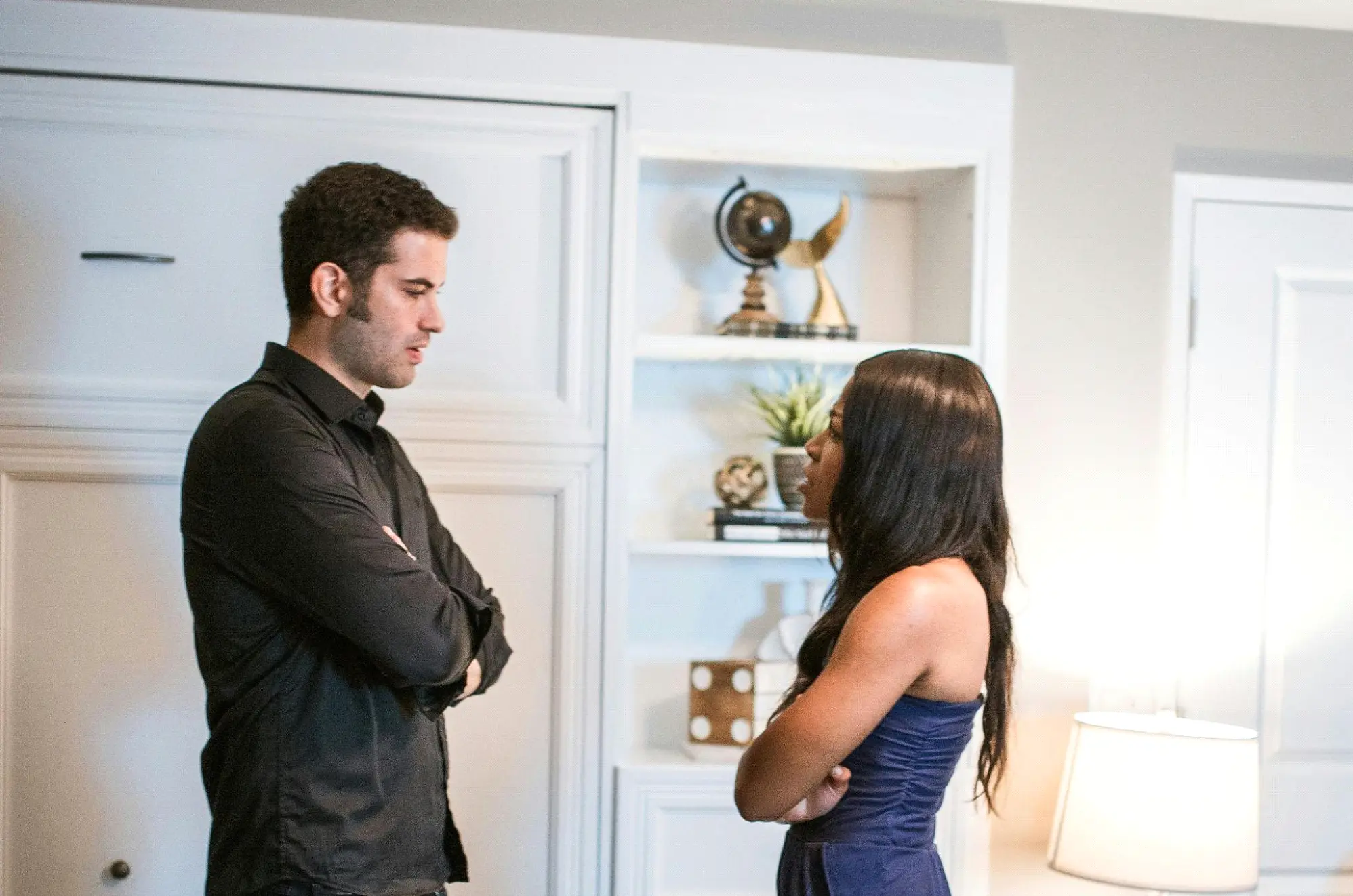
Most people enter romantic relationships with high hopes and grand plans. For those who have fallen in love and are more than ready to commit, the future tends to appear full of promise.
This optimism can take root within anyone, regardless of age, gender, or culture. It’s one of the perks of opening your heart up to love.
But no matter how optimistic couples can be, there’s one nagging worry that they won’t always be able to ignore: Breaking up is a common fear for many couples and for good reason.
It means the end of the emotional connection you’ve so worked hard to build with another. For married couples, this usually means divorce, which often entails not just emotional distress but financial strain as well.
Most people who have been in relationships have experienced a split, and even those who haven’t have seen the effects of it.
Often, it’s not a pretty sight.
Why Relationships End
There are different reasons behind break ups. Among the usual suspects are lack of communication, lack of effort, infidelity, toxic behavior, and unresolved issues.
Sometimes, relationships end amicably or at least civilly. It doesn’t always have to involve hostile reasons. Some couples realize that they’ve grown apart or that they no longer want the same things in life. But if their relationship was good, if they’ve treated each other well, they can part ways on friendly terms. They can even choose to stay in touch.
But even when the couple agrees that a break up is the best choice for them, it’s still bound to be a sad event.
After all, you’ll still be closing a chapter in your life. It’s one that likely holds some of your dearest memories. That’s not meant to be an easy task.
How to Break Up

Break ups tend to be difficult. They can even be messy and hostile. Some experts even point to them being among the most challenging life experiences people can go through.
According to a paper published in the journal Psychosomatic Medicine, “Divorce and health: current trends and future directions”, some people who experience divorce are also at risk for poor health, with a mortality rate raised to 23%.
Now, granted these people are not representative of the general populace. But it’s still a known fact that breaking up can be a catalyst to a host of negative emotions, reactions, and behavioral patterns.
Given all that, how should people break up?
The same way people should make any important decision: by giving it a lot of thought first. A break up is an ending, after all. Whenever possible, you shouldn’t delay it nor should you rush through it.
Ideally, calling off the relationship should not come out of nowhere. If the couple has issues with each other, they should discuss and try to resolve those first. Barring certain urgent instances, such as infidelity, crime, or abuse, the first time an issue comes up should not be when you tell your partner you want to split up.
The manner in which couples end their connection will differ, but there are some tips to keep in mind:
Be sober when you have that conversation – Considering how stressful calling it quits can be, it may be tempting to knock back a glass or two of liquid courage. But that’s ill-advised.
Ending things will impact the lives of at least two people. It’s a choice that should be made as level headedly as possible.
Being sober also means that all other important decisions and discussions tied to the act of breaking up will be dealt with as calmly and reasonably as can be given the circumstances.
Be clear about your intentions – If you’re the one who initiates the break up, be straightforward and firm that you want to separate. You’re not asking for space. You’re not just venting. You’re ending the relationship.
Be respectful – Being firm and honest doesn’t mean being harsh. Break ups can be
emotionally intense, which is why thinking it through first is advisable. It will help you say what needs to be
said, without adding unnecessary insults or judgment to the mix.
Be compassionate – Put yourself in your soon-to-be ex’s shoes. At this point in the
relationship, you would have gotten to know them well enough. How would the way you speak affect them? Is the
time you chose to have the conversation appropriate? These are just some questions to consider before going for
it.
Ways of Breaking Up
There’s no one right way to break up. People are different and so are the relationships they’re in. They will have to consider the approach that’s safest and most honest for them.

By sending a break up text – Generally, breaking up through text, social media, or phone calls are frowned upon. These ways are impersonal—even disrespectful. But there are times when ending your relationship digitally is the better course of action.
Couples in long-distance relationships would only be capable of breaking up online or through a video call. Those who have not been together for a long time, and are not yet deeply emotionally invested with each other might also find it more convenient.
Some people might also feel safer ending their relationships without being in the same room as their soon-to-be exes. These may be people who have reason to fear violent reactions or those who have suffered in abusive relationships.
In such situations, one’s safety should take precedence over propriety.
By writing a break up letter – Whether handwritten or sent as an email, break up letters aren’t considered any more ideal than a text message. But, like breaking up over text, it has its merits.
Some people struggle to express themselves verbally, especially when emotions are involved.
This type of split should also be seen within the context of the relationship. If the couple has a tendency to argue in circles, or have every serious conversation devolve into blame shifting without the discussion progressing, then a letter might be the way to go.
There are also people who break up for reasons that have nothing to do with a loss of love or no longer wanting to be together. For them, breaking up from a distance may be necessary to lessen the risk of their resolve wavering if they have to see their partner while trying to end things.
An example of couples who may face these challenges are those developing codependent patterns. Then there are those who are not worried about unhealthy tendencies. Rather, they just come to the realization that they have more pressing priorities than their relationship at the time.
Some couples have also tried ending things before, only to reconcile while talking about calling it quits. For them, a letter may be more effective and just as sincere.
Breaking up face to face – If ever there was one way generally considered to be the right one for ending relationships, doing so face to face would be it. It’s seen as more personal and respectful. It means that the person initiating the breakup values their soon-to-be ex enough to acknowledge their feelings and reaction.
This is typically done by those who have been together for a long time, but it’s not about how long a couple has been together. It’s about what one considers the most empathetic and respectful approach would be.
Stages of a Break Up

Like every significant emotional event, the end of a relationship can be felt long after someone utters the words “It’s over”.
Grief sets in and it’s a natural reaction. Something has died – the relationship. The former couple, the initiator and the one who is getting jilted alike, are bound to grieve its loss.
As such, former couples go through the different stages of a break up. These are not unlike the stages of grief:
Uncertainty – For the person who initiated the break up, in particular, this may be the first stage they find themselves in. They question whether or not breaking up was the right thing to do.
But those who are broken up with may also question the choice. They might wonder if they should have put up more of a fight or if they should have walked away first.
Both will probably wonder, “Now what?” for a while afterwards.
Denial (or shock) – It’s hard to accept that your relationship is over. Some people deny this reality. Some might think that their situation isn’t real. It’s probably a mistake, and their ex will soon call them to explain.
This can also manifest in reading too much into the words or actions of one’s ex post-break up. “Why didn’t they block me?” “What did they mean that they’ll always care about me?”
Bargaining – This can typically happen during the break up conversation. The one who is being jilted might want to argue with or convince their former partner to change their mind.
This can even go on well after the break up itself, manifesting in late-night texts demanding explanations or answers. Sometimes, the one who was broken up with would talk about their doubts with friends and family. They might talk about why the relationship could have been saved, if only their ex was willing to put in more work or didn’t give up so easily.
On the flip side, bargaining can work. The couple can arrive at a compromise, such as counseling or establishing new boundaries.
But the on-again-off-again kind of relationship can form from arrangements like these if the second chances (or third) don’t work. Sometimes, it takes more than once for a break up to stick.
Anger – Though not everyone who experiences a break up gets angry, it’s not an uncommon reaction, particularly if the former couple each believes they’ve been wronged by their ex.
Rage texting, badmouthing their ex, even petty acts of revenge can come through the anger stage. Anger is a valid emotion, but not everything done in anger is a valid act.
Sadness – Eventually, the reality that the relationship is over and that things will never go back to the way they were will sink in. At this point, each person involved will feel the pain of the break up combined with sorrow.
Some might even sink into depression, wondering if they will ever find love again. This stage may manifest in tears, emotional eating, watching sad movies or listening to break up songs.
Acceptance – At this point, not only will the end of the relationship be a reality, those experiencing it will see it for what it is: an event that happened and can no longer be changed.
The relationship is over. They are now single. For some, that can be the start of healing. For others, sadness might still color their days and they might feel pessimistic about relationships in general.
Moving on – This is the ideal outcome of every break up. It has been the subject of many motivational break up quotes. Moving on is the stage where the former couple realizes that they’ve come to terms with the end of their relationship.
They feel better about life in general and start to regain their appetite for living it. Some may also develop an interest in new relationships. Contrary to conventional knowledge, being in a new relationship is not a requirement for moving on. Ideally, one should move on first before giving a new relationship a chance.
These stages don’t necessarily happen in chronological order. It’s possible for one to start with sadness rather than uncertainty. It’s possible that, even when one has reached the stage of acceptance, there will still be times when anger bursts through.
One must also remember that for each hard stage to go through, there are healthy ways of coping.
Is Deciding to Separate the Answer?
The harsh truth is that it usually only takes one person in the relationship to know the answer. It’s a deeply personal choice, but what makes it so complicated and often painful is that it involves at least one other person.
In the final analysis, breaking up is not bad. If a person is contemplating ending a relationship, that doesn’t mean that they’re doing something wrong, nor does it mean that their partner is at fault.
Sometimes, a relationship just doesn’t work. If it’s only good for one and not the other, then it’s not working. If it works for neither but it’s still continuing, it’s not working. Breaking up is not an easy decision, but there are times when it’s the most honorable one.
When done for the right reasons, and in a respectful and compassionate manner, the end of one relationship can be the beginning of a healthier, fuller way of life for everyone involved.
References
Sbarra, David A. “Divorce and health: current trends and future directions.” Psychosomatic medicine vol. 77,3 (2015): 227-36. doi:10.1097/PSY.0000000000000168

